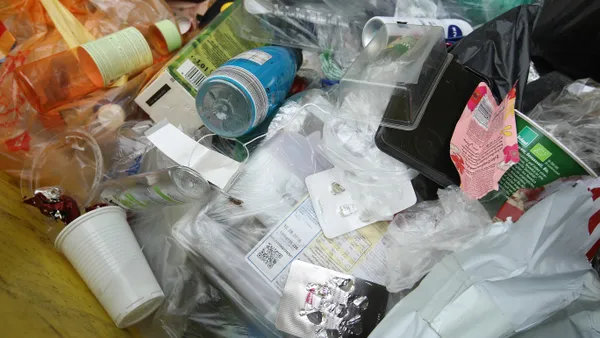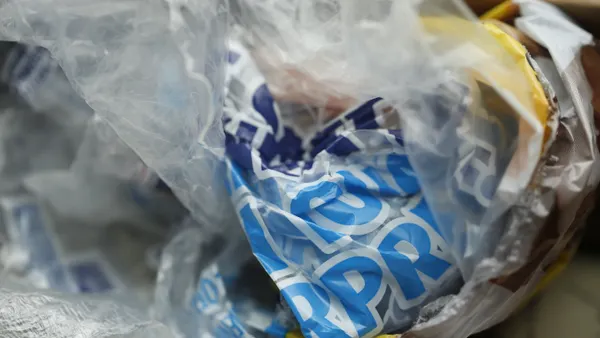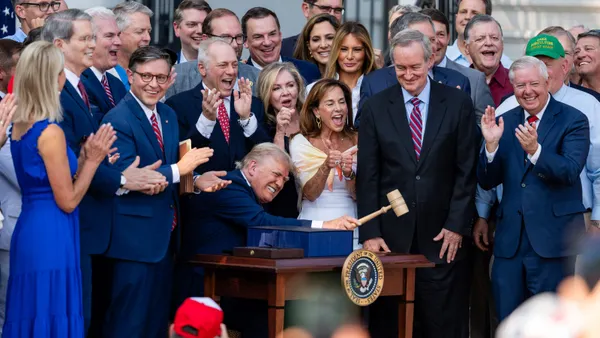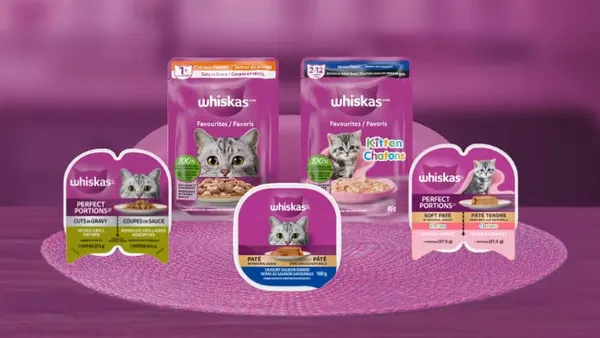Dive Brief:
- Dow Packaging and Specialty Plastics and Keep America Beautiful have announced the award of two $50,000 grants to expand the Hefty EnergyBag program in Idaho and Georgia. The program focuses on collecting traditionally non-recyclable plastic material — such as chip bags, juice pouches and other packaging — via special orange bags.
- Boise, ID's bags will be collected by Republic Services and taken to the Western Recycling material recovery facility with other recyclable material. The bags will then be pulled out prior to sorting and taken to Salt Lake City-based Renewology, formerly PK Clean, for conversion into fuel. This program will be sponsored by Happy Family Brands.
- Cobb County, GA, working with Keep Cobb Beautiful, will have bags collected by American Disposal and taken to a WestRock MRF. The material will then be taken to Atlanta-based Nexus Fuels, which creates fuel via its own pyrolysis process. Local sponsors have not yet been identified.
Dive Insight:
The EnergyBag program is described by Dow as a complement to existing recycling programs to capture the plastics that comprise an estimated 2-3% of the waste stream and currently have no end market. The concept was piloted in Citrus Heights, CA, during 2014 and launched full-scale in Omaha, NE in 2016. During its first year, the Omaha program collected more than 19,500 bags and diverted an estimated 11 tons of plastics from landfills.
However, the fact that this Omaha program is using a local cement kiln with a record of violations has become a key talking point for environmental groups such as the Global Alliance for Incinerator Alternatives (GAIA) in recent months. Last year, GAIA included the EnergyBag program in a report about "false" paths to "zero waste" and was quick to express "concern and dismay" about the news of its recent expansion. The group's latest press release focused on potential confusion among residents about what items are truly recyclable, citing China's new contamination standards, and said this only encouraged excessive plastics production.
Yet Dow has previously said the EnergyBag program can help reduce contamination in traditional recycling streams and defended the role of newer flexible and lightweight plastic packaging. Last month, City College's Earth Engineering Center also came out in support of the EnergyBag program in the broader context of finding new recycling opportunities for plastic.
This is all part of the ongoing debate about what actually constitutes "zero waste" or a true "circular economy." Groups such as GAIA want to see plastic production curtailed in general. Dow and other manufacturers believe lightweight and flexible packaging can have its own environmental benefits, even if recycling options aren't readily available in communities around the country. Based on the interest from Idaho and Georgia, among other applicants, those communities are also interested in finding ways to keep plastic material out of their landfills while this broader discussion plays out.










